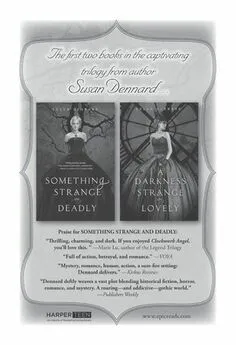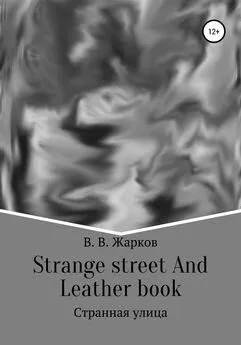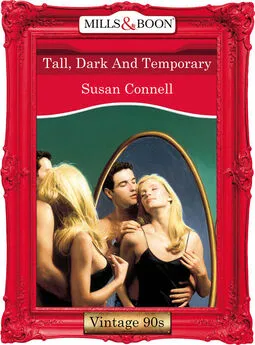Susan Dennard - A Darkness Strange and Lovely
- Название:A Darkness Strange and Lovely
- Автор:
- Жанр:
- Издательство:неизвестно
- Год:неизвестен
- ISBN:нет данных
- Рейтинг:
- Избранное:Добавить в избранное
-
Отзывы:
-
Ваша оценка:
Susan Dennard - A Darkness Strange and Lovely краткое содержание
Following an all-out battle with the walking Dead, the Spirit Hunters have fled Philadelphia, leaving Eleanor alone to cope with the devastating aftermath. But there’s more trouble ahead—the evil necromancer Marcus has returned, and his diabolical advances have Eleanor escaping to Paris to seek the help of Joseph, Jie, and the infuriatingly handsome Daniel once again. When she arrives, however, she finds a whole new darkness lurking in this City of Light. As harrowing events unfold, Eleanor is forced to make a deadly decision that will mean life or death for everyone.
A Darkness Strange and Lovely - читать онлайн бесплатно полную версию (весь текст целиком)
Интервал:
Закладка:
Nonetheless, as we pulled to a stop in front of the brownstone ledger office, I couldn’t keep my gaze from darting around. Or my ears from straining for howling hounds.
Allison cleared her throat, and I turned my attention to her. “Thank you,” I said. “I . . . I appreciate everything you’ve done for me. Perhaps one day I can repay you.”
She scoffed. “Don’t worry. I intend to call in my debt one day.”
“Of course.” I blinked, again struck by her unpredictable moods. But not wanting to waste another moment on her fickleness, I nodded once and climbed out of the carriage.
As the driver handed me my bag, Allison slid to the carriage door. “Send me a telegram from
Paris. Let me know you have made it alive.”
Now I was truly startled. What did she want from me? Friendship or enmity?
With the hope that it was the former, I said, “Yes. I promise to write.” I bowed my head. “Good-
bye, Allison Wilcox.”
She pulled back into the carriage. “Good-bye, Eleanor Fitt.” Then, with the abruptness that marked all of her movements, she yanked shut the carriage door and left.
And so it was that I found myself standing at the harbor with nothing more than a carpetbag and a drumming heart. The area stank of fish and river—that muddy smell of turbid waters—while the wind
I’d missed in the city’s center swept over me with full force.
Before me was the brownstone ledger building; behind me was everything I knew. Sure, I had read of places all over the world and dreamed of one day seeing them, but I’d never actually left
Philadelphia before. I had no idea what was out there.
But I did not look back.
As soon as I was firmly inside the ledger office, black and white tiles led me to a wall of ticket counters. However, planted directly in my path was a middle-aged woman in an olive dress that was at least five years out of style. She stood unfolding bills and counting— aloud— as I strode toward her.
Sympathy flashed through me as I circled around her. She wouldn’t get far with only ten dollars.
Worse, she was going to get robbed if she wasn’t more careful. Why, she had her steamer ticket dangling halfway out of her pocket!
With a final cringe at how loudly she advertised her naiveté, I marched to the nearest counter, where a bearded clerk waited. I dropped my bag at my feet.
“I need to buy passage to Paris.”
“Can’t go to Paris direct,” he said, his voice gravelly. “It’s not on the coast.”
“Obviously.” I glared in my best Mama impression. “But I need to go to France.”
“So to Le Havre, then.”
“How far is that from Paris?”
“It’ll be half a day’s train ride.” He consulted a booklet of timetables. “There’s only one direct steamer to Le Havre, but it’s full. Obviously.” His eyes rose to mine. “What with the Exhibition, we got foreign travelers everywhere. You won’t be able to get a cabin for two weeks.”
I grimaced. I’d forgotten about the Centennial Exhibition. It had been running so long now—four months—it had blended into the background of Philadelphia for me. “Two weeks absolutely won’t do,” I declared. “I must leave now . What else is there?”
“Well, C.G.T.’s Amérique to Le Havre leaves in two hours.” His eyelids lowered, as if I was wasting his time. “But that lady over there just bought the last second-class ticket.” He motioned to the olive-clad woman, who still stood organizing her pitiful funds.
“Now,” he went on, “there’s only one cabin left, and it’s the most expensive.”
“How expensive?”
“Seein’ as the Amérique is the first ship in the world t’have electric lights, that it don’t take on steerage passengers, and that it includes every meal, the answer is very .”
“I didn’t ask for a history lesson,” I growled. “I asked for the blasted price.”
“Two hundred dollars.”
“Ah,” I breathed, rocking back. That was expensive—certainly more than my emergency money of a hundred and twelve dollars and forty-seven cents. But I kept my face blank because confound it if I would let this man know my financial woes.
“And how much does a train from Le Havre to Paris cost?” I asked.
He glanced at his booklet. “Average cost is . . . fifty francs.” His gaze rose to mine. “Which is about ten dollars.”
Ten dollars . An idea hit me—a reckless, desperate idea. An idea so low that if I thought about it too hard, my morals would come barreling in to interfere.
I glanced back at the middle-aged woman. She was finally putting away her money, and I could only assume she’d be leaving at any moment.
I spun back to the clerk. “And you’re absolutely certain there’s no other boat leaving today?”
“Nothin’, Miss.”
“And what is the cost of a second-class ticket?”
“Why d’you ask when there ain’t one—”
“What. Is. The. Cost?”
“Seventy-five dollars.”
“Thank you,” I said through gnashing teeth. “And which steamer is the Amérique ? I’d like to . . . observe it before I decide on that first-class ticket.”
He jerked his thumb to the left. “The big one with the wheels. You can’t miss it.”
“The big one. Very clear,” I muttered, and before my temper or conscience could get the best of me, I twisted on my heels to leave.
As I’d feared, the woman in olive was gone. So I hefted my carpetbag onto my shoulder, gathered my skirts in my fist, and darted for the street. By the time I stepped outside, it was to find her on the opposite sidewalk and almost to the municipal pier.
I surged after her, my mind racing as fast as my feet and with my scruples flaring to life. You shouldn’t do this, they said. This isn’t like you .
“But,” I whispered in response, thinking how aptly Shakespeare had said it: “Diseases desperate grown. By desperate appliances are relieved.” If I wanted to protect Mama—protect myself—then this was what I had to do. Marcus had come for me because I had the letters. Now I was leaving
Philadelphia, and I prayed that he would follow me to Paris. Follow me to the Spirit-Hunters.
I slowed only once in my pursuit, to yank out seventy-five dollars, and then I marched directly for the woman. Fortunately, she was as scattered in her walking as she had been in her money counting.
And even more fortunately, her steamer ticket still dangled dangerously from her pocket, flipping this way and that in the breeze.
“Pardon me,” I called. “Ma’am?”
She hesitated beside a stack of crates around which dockers buzzed like bees.
Perfect, I thought, hurrying to her side. My heart was lodged far into my throat, pounding hard, but
I still managed to don my most charming smile. “I believe you dropped this.” I held up the seventy-
five dollars and let the wind flutter it enticingly.
Her forehead bunched up. “No, I don’t think I did, Miss.” She spoke with a heavy Irish accent.
“Were you not just counting your money in the ledger office?”
A pair of burly dockers trudged past, and I took the opportunity to shimmy closer to the woman—
and to her ticket.
“I am certain I saw this fall on the floor beside you.” I pushed the cash toward her, and her eyes locked on the money.
Her lips moved as if adding up the bills. “I-I don’t think this is mine, Miss.”
“Well, it isn’t mine either.” I gave her a warm smile. “And it was on the floor where you stood.
You must take it. I insist.”
She lifted a quivering hand and slowly closed her fingers around the money.
My pulse quickened. Now was my moment. Keeping the rest of me perfectly still, I slipped my left hand over her ticket. Then all it took was a flick of my wrist, a reangling of my body, and that second-
class ticket was mine.
I bit back a smile, my chest fluttery with triumph. “So you’ll keep the money?” I asked, sliding the ticket into my own pocket and making a great show of readjusting my carpetbag. “It must be yours,” I added.
“Y-yes . . .” She swallowed, her eyes darting to mine. “Thank you.”
“My pleasure, Ma’am.” I positively beamed at her as I bobbed a little curtsy, wished her a lovely day, and trotted as quickly as I could around the dockers and crates.
I did it! Jie would be proud! I’d been just as sneaky as she. I couldn’t wait to tell her, and now, here I was, on my way to actually seeing her. . . .
But a tiny ball of guilt wound into my belly. I scowled, picking up my pace. It was done; I’d taken her ticket, and I was leaving. The end. Now all I had to do was shove the guilt aside and find the
Amérique .
Surprisingly, once I passed all the local ferries, the “big one with the wheels” was rather hard to miss. Twice as tall and three times as long as any other boat at the pier, it blocked out all view of the river. I had to crane my neck to see the white sails billowing at either end. Two red smokestacks stood proudly at the center, and most obvious of all were the gigantic paddle wheels, one on each side.
My bonnet ribbons swatted my face as I approached the ship and made my way around the swaggering sailors and ogling passengers. I checked for any olive-clad women, but my mark was nowhere in sight. No doubt she was still by the stacked crates, counting out her newest funds.
A quick scan ahead showed two gangplanks, one near the street and one all the way at the end of the dock. At the closer plank, stacked luggage outnumbered people, and the women’s colorful gowns shimmered like butterflies. Clearly this was the first-class line.
The more distant line, however, showed men and women dressed like me: well-made but well-
worn clothes. So after a final search for the woman in the olive dress and finding she was nowhere about, I trudged on.
But I only made it a few steps before my right hand—my missing hand—started tingling. Then the hair on my neck sprang up.
I froze midstride. Marcus, Marcus, Marcus —he was all I could think of. My eyes slid left and right, but I could find nothing unusual.
Yet the buzz in my hand did not dull, and now my breath was quickening.
Stay calm, Eleanor. Focus. With forced cool, I looked over my shoulder toward land and searched the area. But no light flickered or energy sparkled.
If Marcus or something Dead was nearby, it wasn’t showing itself.
So I made myself turn back around and resume my steps. My movements were clunky and rushed, though, and my heart refused to settle.
Then from nowhere, a gust of wind knocked into me. Hard .
I swayed, and the air flipped around me, tugging at my skirts like a riptide. I spun around and frantically checked the dockers’ and sailors’ reactions. Except that none of them seemed affected by this gale.
Pain burst in my wrist. It was the scene from the bank all over again, and I knew I had to run. Just get on the ship! It was the only shelter around, and though I didn’t believe walls could really stop
Marcus, it was the closest thing to safety I could conjure.
So I thrust myself forward, leaning into the unnatural wind and gulping for air. But the throbbing where my hand once was—it shrieked so loudly, it dulled all my other senses. I shambled forward like one of the Dead.
Then came the first howl, and I froze all over again. It was an unmistakably long and plaintive baying, and with it came a smell. A pungent, dank smell that wasn’t from the river. A smell I knew .
Читать дальшеИнтервал:
Закладка:










